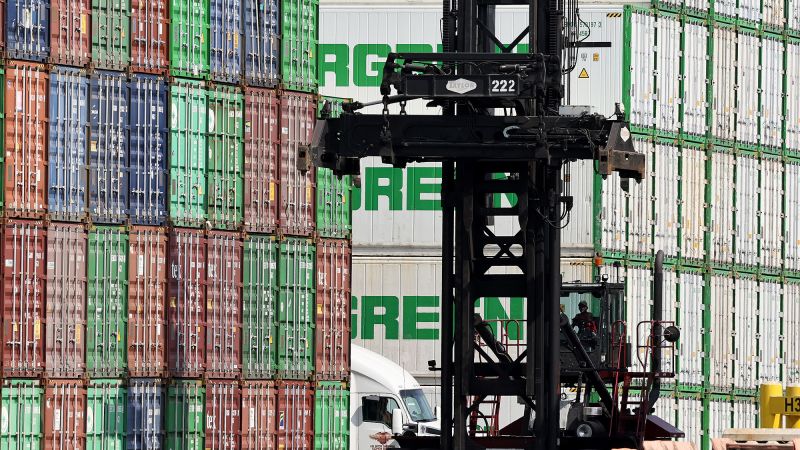Former President Donald Trump recently spoke at the Economic Club of Chicago, reiterating his support for tariffs as a way to boost America’s manufacturing sector. However, it’s important to remember that tariffs are essentially a tax on Americans. Despite this fact, many people, including Trump, wrongly believe that foreign countries, such as China, will pay for tariffs imposed by the US. In reality, the cost of tariffs is passed on to American companies, which leads to increased prices for consumers.
The disconnect between political messaging and the reality of tariffs was highlighted in a widely shared TikTok video where a podcaster admitted confusion about who actually pays tariffs. Economists from both sides of the political spectrum are questioning the effectiveness of tariffs as a policy tool. Despite criticism, Trump remains steadfast in his support for tariffs, claiming they will protect American companies and encourage new businesses to move in. However, adding tariffs to goods imported into the US ultimately raises prices and increases inflation for consumers.
Since Trump’s initial imposition of tariffs on Chinese goods, President Joe Biden has continued these policies, even expanding tariffs to other products in an effort to bolster US manufacturing and clean energy. However, studies show that American consumers have borne the brunt of the costs of these tariffs. Looking ahead to the possibility of a second term for Trump, he has outlined plans to significantly increase tariffs on imports from around the world. This includes tariffs of up to 20% on all foreign imports, additional tariffs on Chinese imports, and even a potential “100% tariff” on countries shifting away from using the US dollar.
Expert economists argue that while tariffs can be justified for national security reasons, they are ultimately an expensive and inefficient tax that disproportionately affects lower-income individuals. The Peterson Institute estimates that the added cost of tariffs for a typical middle-income household could be over $2,600 per year. Research suggests that Trump’s tariff policies, if enacted, could lead to spikes in inflation, slower economic growth, and decreased employment. Vice President Kamala Harris has criticized tariffs as a “sales tax on the American people” but has not outlined specific plans regarding trade restrictions.
In conclusion, while tariffs may sound appealing to Trump, they do not result in the outcomes he claims. Instead, tariffs lead to increased prices for consumers and retaliation from America’s trading partners. Economists warn that Trump’s tariff-heavy approach, combined with other economic policies, could have detrimental effects on the economy. Ultimately, the issue of tariffs remains a contentious one with significant implications for the future of US trade policy.


